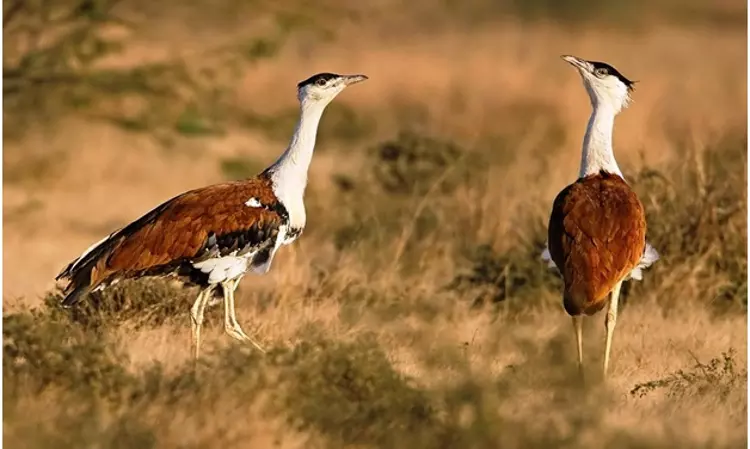NGT Hears Plea Seeking Protection Of The Endangered Great Indian Bustard
Arunima Bhattacharjee
7 Sept 2019 5:05 PM IST

Next Story
7 Sept 2019 5:05 PM IST
The NGT has directed the formation of a Joint Committee to mitigate measures for protecting the Great Indian Bustard (GIB). The Purpose of the committee is to prepare a time bound action plan to ensure the survival of the critically endangered specie, as per Schedule-I to the Wildlife Protection Act, 1972. The Principal Bench was hearing a plea filed by the NGO Centre for...
